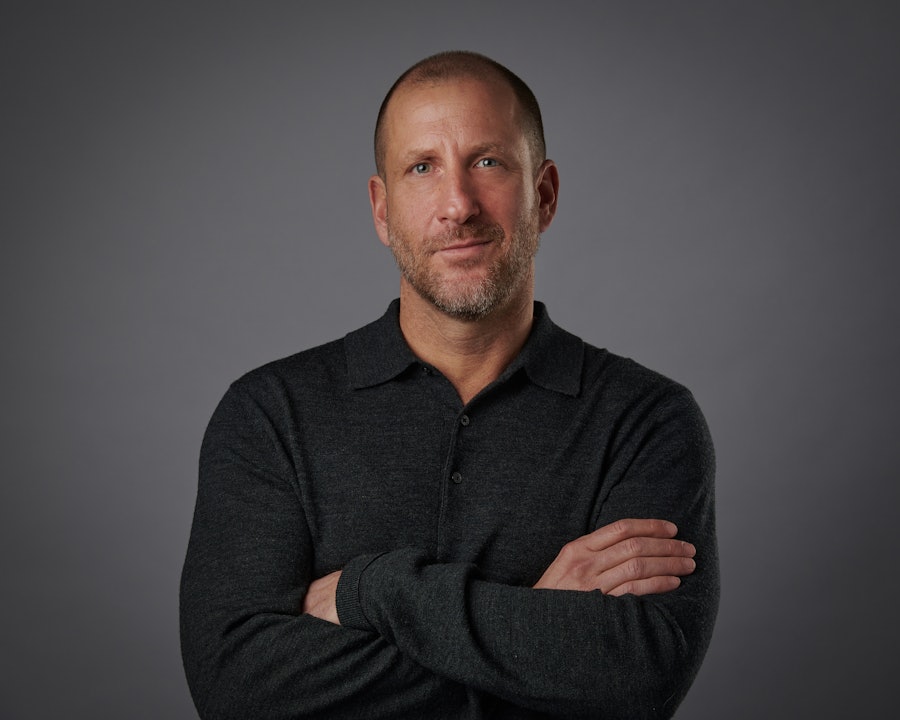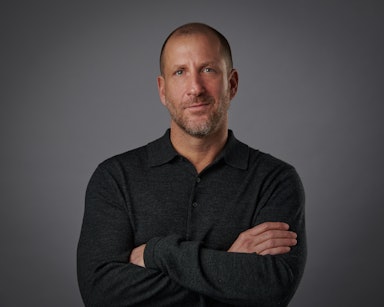“Look after your people’s health and they’ll take care of business health”: An interview with Josh Krichefski, CEO at GroupM and President of the IPA

Naomi Lucking
06 June 2023

Content
- What sparked your interest in mental health in the workplace?
- What have been your most successful wellbeing initiatives at GroupM?
- Why is leadership buy-in critical to the success of mental health and wellbeing initiatives?
- Can you tell us about your plans to launch a people-first agenda in your new role as President of the IPA?
- What are your hopes for the future of the workplace?
Josh Krichefski is known across the advertising industry as a champion for mental health and cultural change. He was recently elected President of the IPA (Institute of Practitioners in Advertising).
We sat down with him to learn about his passion for mental health, the changes he’s made at GroupM and his plans for a people-first agenda with the IPA.
What sparked your interest in mental health in the workplace?
It was my own experience. I’ve spoken openly about how I struggle with insomnia because of my anxiety.
It’s always very work related – whenever I’ve got loads going on I just can’t sleep. I often wake in the middle of the night with work worries swirling around my head – something I haven’t done or some decision I made.
So when I became CEO at GroupM, I knew I wanted mental health and wellbeing to be my focus.
I wanted to create a culture where people could switch off.

What have been your most successful wellbeing initiatives at GroupM?
We have mental health allies, they’re a really valued group of people. They’re volunteers who are a bit like Mental Health First Aiders, but we don’t use that term because it makes it sound like there’s a problem to be fixed.
Our allies are there for anyone who wants to talk. They’re trained to ask open questions so people can really open up about how they’re feeling. They’re also trained to understand common mental health issues so they can tell if someone might need professional help or if they’re just having a bad day at work.
Another initiative that’s been a big success is called my mental health story. Someone volunteers to write up their personal story and it gets sent in an email to everyone at the company.
Whenever a story gets sent out there’s complete silence in the office. We’ve had so many people give great feedback and share how much respect they have for the people who’ve decided to share their stories. It’s really helped us build that culture of openness.
And the final initiative that’s been really successful is our partnership with Unmind. There’s so many great training programmes on the platform that help with things like people management – the things that are at the heart of building a good culture.
A lot of our success at GroupM has come from our focus on wellbeing. People want to be part of that culture – it’s helped us to attract and retain the best talent.

Why is leadership buy-in critical to the success of mental health and wellbeing initiatives?
The culture of a business starts at the top. As a leader you have to model the behaviour you want to see in your teams.
That’s why I’m so open about my own mental health. I talk about my anxiety and I say if I’m feeling a bit insecure – especially when I’m the most senior person in the room.
I used to worry that it might undermine my authority or make me seem less of a ‘man’. But it’s become easier over time, and it makes things easier for other people too. When a leader talks about their wellbeing it gives other people permission to do the same.
Can you tell us about your plans to launch a people-first agenda in your new role as President of the IPA?
My aim is to keep our industry relevant in a changing world. Advertising has historically attracted the best people and the finest talent. But we’ve got a reputation challenge – graduates don’t see advertising as the great career option it once was.
We need to change things if we want to attract the brightest and the best. And the way to do it is by putting people first.
The biggest growing brands of the last ten years are those who are big on positive culture and CSR (corporate social responsibility). People want to work for brands that care.
Prioritising mental health in the workplace benefits employers as much as employees. It increases productivity and innovation. And it attracts and retains real talent.
We don’t have factories or trucks in our industry. People are our assets – they’re everything. We have to take care of them.

What are your hopes for the future of the workplace?
In my time I’ve realised that there are a lot of businesses out there that want to do the right thing, but there are also many who don’t. Many leaders still have this really outdated stiff-upper-lip approach to business.
For real change beyond our industry, we need legislation. I’ve been lobbying the government to make mental health reporting mandatory. This will allow us all to share ideas, prioritise the issue and measure the change we’re making.
Ultimately my hope is that culture will become a more native thing. But for that to happen the mindset of leadership has to change.

About the Author

Naomi Lucking, Content and Community Manager
About the Author
